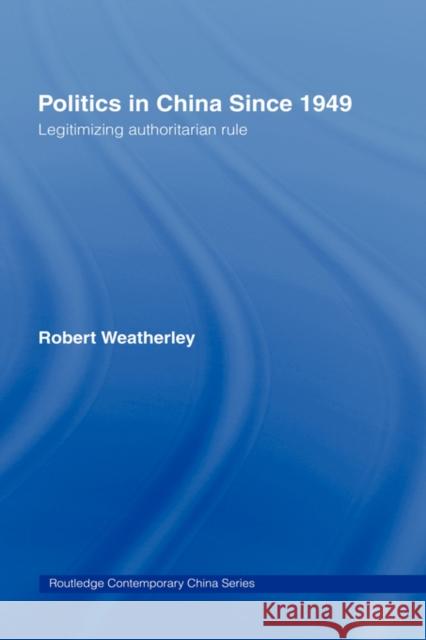Politics in China since 1949: Legitimizing Authoritarian Rule » książka
Politics in China since 1949: Legitimizing Authoritarian Rule
ISBN-13: 9780415391092 / Angielski / Twarda / 2006 / 220 str.
Politics in China since 1949: Legitimizing Authoritarian Rule
ISBN-13: 9780415391092 / Angielski / Twarda / 2006 / 220 str.
(netto: 463,55 VAT: 5%)
Najniższa cena z 30 dni: 459,55
ok. 16-18 dni roboczych.
Darmowa dostawa!
Since the victory of the 1949 revolution the incumbency of the Chinese Communist Party has been characterized by an almost relentless struggle to legitimize its monopoly on political power. During the Mao era, attempts to derive legitimacy focused primarily on mass participation in political affairs, a blend of Marxist and nationalist ideology, and the charismatic authority of Mao Zedong. The dramatic failure of the Cultural Revolution forced the post-Mao leadership to discard these discredited paradigms of legitimacy and move towards an almost exclusively performance based concept founded on market economic reform. The reforms during the 1980s generated a number of unwelcome but inevitable side effects such as official corruption, high unemployment and significant socio-economic inequality. These factors culminated ultimately in the 1989 demonstrations in Tiananmen Square and throughout China. Since Tiananmen the party has sought to diversify the basis of its legitimacy by adhering more closely to constitutional procedures in decision making and, to a certain extent, by reinventing itself as a conservative nationalist party. This probing study of post-communist revolution Chinese politics sets out to discover if there is a plausible alternative to the electoral mode or if legitimacy is the exclusive domain of the multi-party system.











